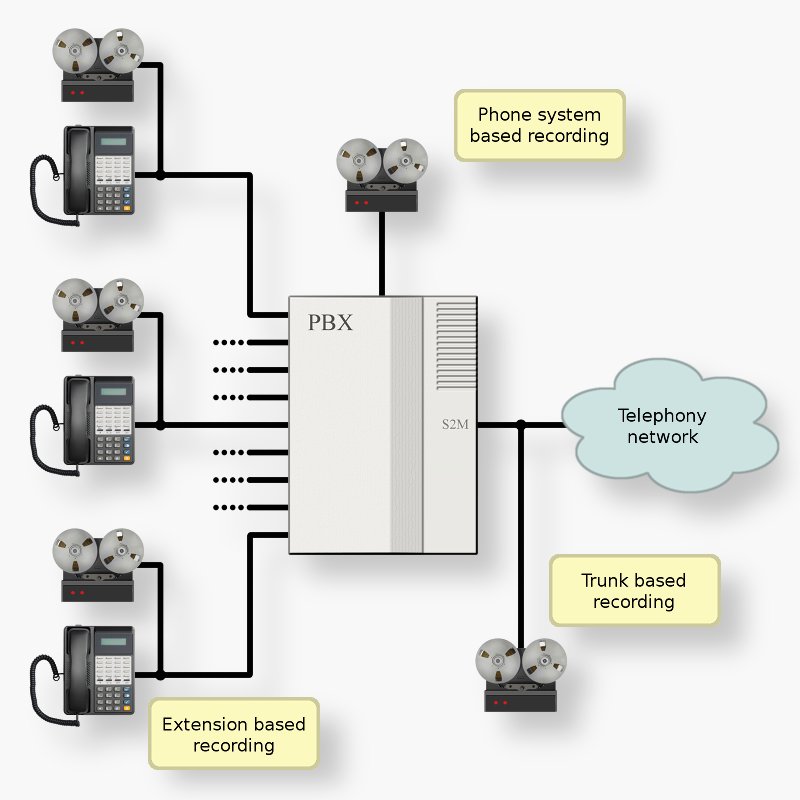Overview of Call Recording Technology
Call Recording technology varies greatly depending on the aim, the resources and legal status of the entity seeking to record phone conversations:
-
Law enforcement authorities will typically send a court order to a phone network operator asking to provide a live phone tap. The phone tap needs to be provided as part of the network operator's license requirements and is implemented as a programmable diversion in a core network switch.
-
Secret service agencies typically do not feel to be bound by local legislation and therefore seek to conceal recording devices as much as possible. Very often these agencies also have access to the resources of law enforcement authorities. So both subscriber lines and network switches can be tapped.
-
Network operators might wish to obtain temporary recordings to find faults in the network, assess speech quality or to follow up on customer complaints.
-
Phone network subscribers may desire to record their own conversations for either private, commercial, legal or security reasons.
Products by innoventif are not suitable for public network taps and concealed phone taps. They are only intended to be used by phone network subscribers in their own premises using their own private equipment. The legal requirements for obtaining phone recordings differ from country to country but generally the consent of at least one party participating in the call is necessary for recording in private networks. Some countries require both recorded parties to agree to the recording of a call and other countries ask for an anouncement before starting a recording.

Depending on the placement of the tap device call recording solutions can be classified into
- phone system based recording solutions,
- trunk based recording solutions,
- extension based recording solutions.
- CTI based recording solutions.
- capture based recording solutions (VoIP).
Each of the different approaches has its unique advantages and disadvantages, which will be discussed below.
